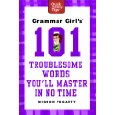Writers frequently ask me if an editor is really necessary. The answer is no. An editor is not necessary, an editor is essential.
Many indie authors say, “But, I can’t afford it.” The truth is, if you can’t afford it, then don’t publish a book. Something I think many indie authors tend to miss is that you guys are running a small business. You’re the boss and the employee and everything in between, and should expect a certain amount of upfront cost. Releasing a book before it’s ready because you won’t hire an editor or cover designer does more harm than good. It is better to wait and make sure that your book is as strong as you can make it before you throw it to the wolves.
Especially your first book. There are thousands and thousands of self-published books out there and they’re all inexpensive and easy to get. If a reader gets hold of it, finds a few spelling errors, a missed word here or there, and an abundance of passive voice, they’ll put your book down (or remove it from their e-reader) and just move on to the next thing. They’ll never give your potentially wonderful story a chance to be potentially wonderful—and there goes your chance for future sales to that reader. Think what your reaction would be as a reader. First impressions mean everything. That goes for your first book in a new series, your first book ever, your first chapter, your first page, your first sentence.
The New York Times has editors, TV news stations have editors, Vogue and Maxim have editors, all the publishing houses have editors. Why would successful businesses like those all use editors? There must be a reason. . . . Ah, yes. It is because they’re essential to a finely tuned, professional product.
An indie editor is different from a trad editor. The only person who pays an independent or freelance editor is you. The only person that editor is beholden to is you. Their job is to strengthen your words and your voice to help make your story as good as it can be. The way you want it. A good one will be enthusiastically in your corner, working to help make you a success. And you want them in your corner. You wouldn’t think of going into an MMA match without having had a trainer. You’d get killed. Likewise, you shouldn’t throw your darlings to those wolves without some ninja skillz.
An editor’s job is not to rewrite you. Writing is your job. Their job is to help you make that writing shine as brilliantly as possible.
And another huge difference between indie and trad editors? Between hiring your own editor and having one imposed on you? If you hate what they do, you don’t have to use it—any of it.
So what can your friendly neighborhood editor do for you? There are several forms of editing; copy or line, content, substantive, proof reading. We’ll focus on line and content which will be the most applicable and reasonable for an indie author.
A copy or line edit, as the name suggests, is a meticulous edit of each line in the text looking for missing and misspelled words, superfluous language and redundant phrases, mixed tenses, and all technical inconsistencies. Line editing is editing for tone, style and flow—focusing on polishing the author’s words to improve the overall effect and increase the impact of the writer’s message. And to make sure that horrible passive voice is not yammering all over your story. You don’t want readers to admire your writing. You want them to be so engaged by the story that they don’t notice your words.
A content edit is more involved. It is checking the story for logic holes, inconsistencies of plot and character, patching any holes in the fourth wall, finding spots in the story that are weak or don’t make sense, then suggesting possible solutions.
An editor’s job is to help you get the movie you see running in your head playing the same way in the heads of your readers. What makes a story work is an emotional connection with your readership. If you get that, they’ll love your book and they’ll love you.
A good content editor is not easy to find; there aren’t many out there who can tell you what’s wrong and offer solutions on how to fix it. So be careful. Get references, talk to people you trust or people with experience.
When you contact an editor be professional. Be prepared to send a sample. Be prepared to give the editor a deposit for reserving time for you. Be prepared to meet your deadlines so that you have time to do a couple passes on your own before handing it off. Not only will those passes make your editor happy, but it will make your wallet happy. Make sure you know what format the editor needs. For example, I use industry standard—I know how long an MS formatted to those specifications will take me to edit based on a five page sample.
What will amaze and appall editors of all shapes and sizes is that a large percentage of manuscripts submitted for review have not even basic formatting set correctly. It immediately gives the impression of laziness, that the author didn’t care enough to do a little research.
If you are curious what the vaunted Industry Standard looks like, read Vonda McIntyre’s handout. This is a good starting point, but keep in mind that the industry is in flux and many online submissions will vary from this. If they do, they’ll certainly state it in their submission guidelines. If not, always go with the old standard.
A good content editor will also be able to help you sculpt your story to best appeal to the audience for which it is targeted. Do you want to enrapture teenage girls? Or do you want men in their thirties on the edges of their seats? Knowing who you are writing for and what appeals to them is as important as having a wonderful story. Because what might be an amazing story to that thirty-five year old guy is almost certainly not going to appeal all that much to a sixteen year old girl.
So, all you indie authors out there, go out and find an editor you love (and hate—if the editor is any good you’ll curse their name more than a few times). Get that editor working for you, and let them help you and your business produce the best product possible.
Joshua Essoe is a full-time, freelance editor. He’s done work for best-seller David Farland, including the multi-award winning novel, Nightingale, Dean Lorey, lead writer of Arrested Development, best-seller, James Artimus Owen, and numerous Writers of the Future authors and winners, as well as many top-notch independents. He is currently the finishing editor at Urban Fantasy Magazine.
Together with tie-in writer Jordan Ellinger, indie success-story, Michale J. Sullivan, and traditionally published author and NY Times best-seller, Debbie Viguie, he records the weekly writing podcast Hide and Create. You can find his interview episode here.
When not editing . . . ha ha, a joke. He was a 2014 finalist in the Writers of the Future contest, and lives with his wife, and three horrible cats near UCLA.
 Recently I gave a presentation to a local writers’ group on the art of giving critique. To fully understand and engage in the critique process we need to first understand why we write, what a critique is, how an author can help the process and how to give a critique. In this blog, we’ll talk about why we write and why receiving a critique can be so difficult.
Recently I gave a presentation to a local writers’ group on the art of giving critique. To fully understand and engage in the critique process we need to first understand why we write, what a critique is, how an author can help the process and how to give a critique. In this blog, we’ll talk about why we write and why receiving a critique can be so difficult.

